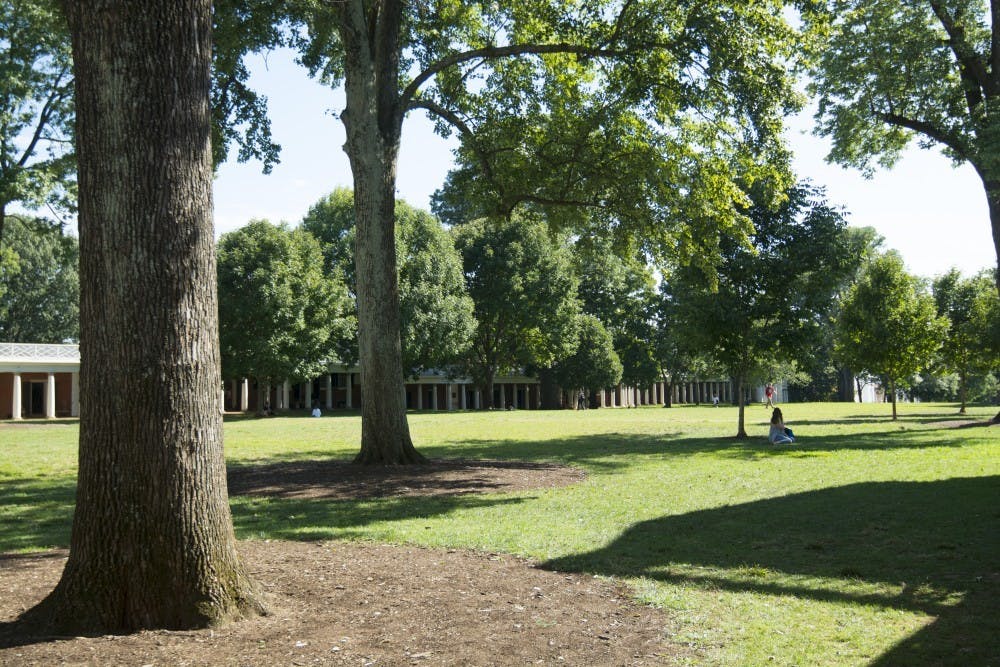Members of the representative body passed SR 21-36, a resolution supporting the For the People Act, and discussed SB 21-35, the proposed summer budget at a May 4 Student Council meeting. At a special session meeting May 5, representatives voted to pass the summer budget.
SR 21-36 — which was sponsored by Gabriela Hernandez, chair of the representative body and second-year College student, and first-year College student Rep. Tyler Busch — passed with 16 yea votes and one abstention.
The resolution supports the For the People Act, which is a Congressional bill introduced by Rep. John Sarbanes, D- MD, and Sen. Jeff Merkely, D-OR, for democracy reform that aims to make federal voting more accessible, end gerrymandering, increase election security, strengthen and enforce campaign finance laws and increase ethical standards in government.
The bill passed in the House of Representatives on March 3 and was introduced to the Senate on March 17. According to Skopos Labs, the bill has an 87 percent chance of being enacted. The biggest threat it faces is from a filibuster from Republican senators. Sixty votes are needed to break a filibuster, and given that every Republican in the House voted against the act and control in the Senate is currently divided 50-50, it appears unlikely that Democrats would have the numbers to end a filibuster.
“The Student Council Representative Body calls on the University to support the For The People Act as it aligns with the University’s increased voting efforts and dedication for civic engagement,” the resolution said.
The federal legislation would create automatic, same-day voter registration on a national scale, prohibit purges from voter rolls, match small-scale political donations to increase citizen political power and increase the disclosure of large donors, among others.
SR 21-16 calls on University students to sign the Un-PAC youth pledge to send to Virginia Senators Tim Kaine and Mark Warner. Un-PAC is a political organization created by former staffers of Senator Bernie Sanders to mobilize young people, particularly students, to support the For the People Act. There are three chapters in Virginia, including one at the University, and the youth pledge has 175 signatures from students in Virginia.
Busch spoke about the role of youth in elections.
“With this display of solidarity, we show that young people are not just present but are engaged in the democratic process,” Busch said.
The resolution provided statistics on the number of U.S. citizens who have restricted access to voting or who do not vote. One in 44 Americans are disenfranchised due to felony convictions, and many predominantly Black communities have faced poll closures that restrict their voting access. In addition, many Native Americans do not have voting rights because they do not have government IDs with a street address. In the 2020 presidential election, about 33 percent of Americans did not vote.
SB 21-35 was sponsored by Hernandez, Abel Liu, president of Student Council and third-year College Student, Ceci Cain, vice president for administration and third-year Batten student, and Adrian Mamaril, chair of internal affairs and second-year Commerce student. It passed with 13 yeas and one nay, and now it is just waiting for approval by the Student Activities Committee, the final step in the budget process.
SB 21-35 proposed the Student Council summer budget, which allocates student activities fee funding and money specifically for Student Council. The summer budget details spending and reimbursement plans for May through October, when another budget will be made. However, certain initiatives in the budget remain in effect beyond October. The proposed budget for 2021 allocates $150,490, compared to last year’s $16,240.
This summer’s budget draws from excess SAF funding from last year, as well as grants. Student Council has an estimated $400,000 left over from last year’s budget due to COVID-19, most of which will be reallocated to CIOs during the regular appropriations process. Liu credits the University of Maryland’s student government’s ambitious reallocation of their leftover budget to their Student Crisis Fund and other programs that support students.
Student Council plans to use some of their SAF funding to create an Aetna Insurance Support Fund, which will create scholarships for out-of-state students on Medicaid who have to buy Aetna, the University’s health insurance plan, which costs $2,980 per year.
If the funding is approved by the Student Activities Committee — which Liu said he is optimistic about — Student Council will be able to create either 27 full scholarships or 80 partial, $1,000 scholarships that will help students pay for insurance. A team from Student Council will work with Student Financial Services to distribute the grants equitably.
This support has been pushed by Political Latinxs United for Movement and Action in Society.
“There's never been a sustainable resource for [the insurance plan],” said Frank Valdez, fourth-year College student and co-president of PLUMAS, during the meeting. “It's something that just kind of gets thrown under the rug and doesn't get included with other financial aid because it doesn't affect a lot of people at U.Va.”
Low-income, out-of-state students without insurance are often forced to take out loans to buy Aetna.
The budget also includes plans for Student Council to completely fund the Fall Activities Fair, which is usually only partially funded by Student Council, with CIOs paying the rest of the cost. Liu plans to use revenue from the fair to financially support CIOs.
In the past, Student Council has used revenue from the fair to fund their internal operations, but this year plans to provide non-SAF funding to CIOs. Student Council also plans on creating a CIO startup fund to financially support organizations aiming for CIO status. Currently, prospective CIOs cannot secure funding from Student Council.
Prominent to the budget is funding for the newly created Support and Access Services Branch, which was a critical part of Liu’s platform. The branch includes Airbus, which provides low-cost transportation to Dulles Airport at the end of the semester; the Accommodations Access Fund, a fund helping students get disability confirmation paperwork so they can utilize Student Disability Access Center resources; the Next Steps Fund, a CAPS fund which pays for students to have two sessions with Charlottesville therapists; and the Textbook Access Office, a free textbook library created in conjunction with The College Scoop, a nonprofit that supports students. The Accommodations Access Fund and the Textbook Access Office are new services and do not yet have websites.
Referenda to create the Support and Access Services Branch passed in March with 84.4 percent approval — more than twice the turnout required for an amendment to pass. In the past, referenda have only carried an eight percent turnout, which is not enough. Liu himself was elected with 81.2 percent of the student vote following a 41.6 percent turnout.







